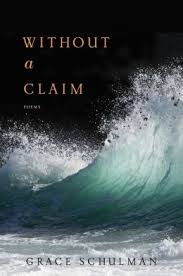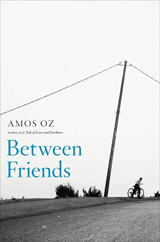Friday Finds for Writers
 Writing-related resources, news, and reflections to enjoy over the weekend.
Writing-related resources, news, and reflections to enjoy over the weekend.
Have a great weekend, everyone!
 Writing-related resources, news, and reflections to enjoy over the weekend.
Writing-related resources, news, and reflections to enjoy over the weekend.
Have a great weekend, everyone!

Shabbat shalom.
 “Myth number one. Some nations seem to believe that a great injustice was done to the Palestinian people when the UN voted to partition then British-Mandate Palestine into two states. In fact, in 1947, Resolution 181 which divided the British Mandate over Palestine, speaks of the creation of a Jewish State no fewer than 25 times. The resolution declared that: ‘independent Arab and Jewish States shall come into existence.’
“Myth number one. Some nations seem to believe that a great injustice was done to the Palestinian people when the UN voted to partition then British-Mandate Palestine into two states. In fact, in 1947, Resolution 181 which divided the British Mandate over Palestine, speaks of the creation of a Jewish State no fewer than 25 times. The resolution declared that: ‘independent Arab and Jewish States shall come into existence.’
The Jews welcomed the plan and joyously declared a new state in their ancient homeland. But the Arabs rejected the plan and – joined by the armies of five Arab nations – launched a war of annihilation against the newly born Jewish state.
Sixty-five years later you still don’t hear the Palestinians talk about two states for two peoples. Sure, Palestinian leaders call for an independent Palestinian state, but they insist that the Palestinian people return to the Jewish state. This is a euphemism for the destruction of the State of Israel and a major hurdle to peace.”
Source: Text of speech to UN Security Council, by Israel’s Ambassador to the UN, Ron Prosor, October 22, 2013. Read about Myths 2-5, too.
(I often think that Ambassador Prosor has one of the most thankless jobs in the world. For some insights into how he manages it, check out Yair Rosenberg’s recent Tablet article.)
 I’ve had the good fortune to meet a number of very talented, very generous writers through my (non-teaching) day job at The City University of New York. One of those writers is poet Grace Schulman, Distinguished Professor of English at CUNY’s Baruch College. Last Friday, at Grace’s kind invitation, I attended a party to celebrate the publication of her most recent collection, Without a Claim.
I’ve had the good fortune to meet a number of very talented, very generous writers through my (non-teaching) day job at The City University of New York. One of those writers is poet Grace Schulman, Distinguished Professor of English at CUNY’s Baruch College. Last Friday, at Grace’s kind invitation, I attended a party to celebrate the publication of her most recent collection, Without a Claim.
It was a lovely evening, not least because copies of the book were scattered around the room on small tables. They weren’t for sale, alas, but I stole a good long look. I’ve often found Grace’s Jewishly-inflected poetry especially moving, and one poem in the new book (“Havdalah”) is one I’m looking forward to revisiting many times once the copy I’ve ordered arrives.
Grace read just one poem for us on Friday evening: “Celebration.” A fitting poem for the occasion, to be sure. But I wasn’t alone in wishing that she’d read much more.
 I’ve only read smatterings of the work of Amos Oz, a weakness that I hope to rectify asap. I’m motivated by my recent reading of Between Friends, a story collection (translated by Sondra Silverston) that will certainly rank among the very best books that I’ve read this year.
I’ve only read smatterings of the work of Amos Oz, a weakness that I hope to rectify asap. I’m motivated by my recent reading of Between Friends, a story collection (translated by Sondra Silverston) that will certainly rank among the very best books that I’ve read this year.
The book comprises eight linked stories featuring characters who live on the same (fictional) kibbutz circa the 1950s. I borrowed the book from the library, but I may have to buy a copy of my own. In the meantime, eager to at least sample as much of Oz’s oeuvre as I can, I’ve ordered The Amos Oz Reader (edited by Nitza Ben Dov and tanslated by Nicholas de Lange), and I can’t wait to dive in.
Instead of attempting a full-fledged review, I’ll point you to some perspectives that echo many of mine. To wit: Marie’s take on The Boston Bibliophile and Ranen Omer-Sherman’s Forward review.
If you’re a New Yorker subscriber, you can find the book’s opening story, “The King of Norway,” in the magazine’s archive. Similarly, Harper’s subscribers have access to the second story, “Two Women.” (I’m disappointed that I can’t find the concluding story, “Esperanto,” online; it is, in my view, exceptionally good as a standalone piece as well as a perfect wrap-up for the linked collection.) And available to all: Tablet magazine’s superb interview with Oz, on the occasion of this book’s release.
Have any of you read Between Friends? And do you have any special suggestions as I attempt to consume as much of Oz’s writing as I can?